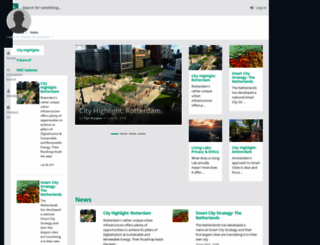Next Generation City - Knowledge Platform on Smart Cities
Page Load Speed
2.2 sec in total
First Response
379 ms
Resources Loaded
1.7 sec
Page Rendered
79 ms

About Website
Visit nextgeneration.city now to see the best up-to-date Next Generation content and also check out these interesting facts you probably never knew about nextgeneration.city
Knowledge Platform and Community on Smart City strategy and Smart Cities. Connecting theory and practice, recent research and projects from all over the world.
Visit nextgeneration.cityKey Findings
We analyzed Nextgeneration.city page load time and found that the first response time was 379 ms and then it took 1.8 sec to load all DOM resources and completely render a web page. This is quite a good result, as only 35% of websites can load faster.